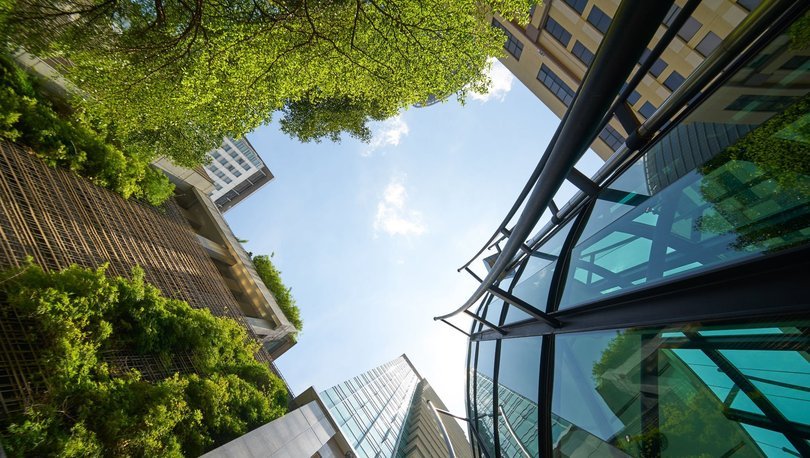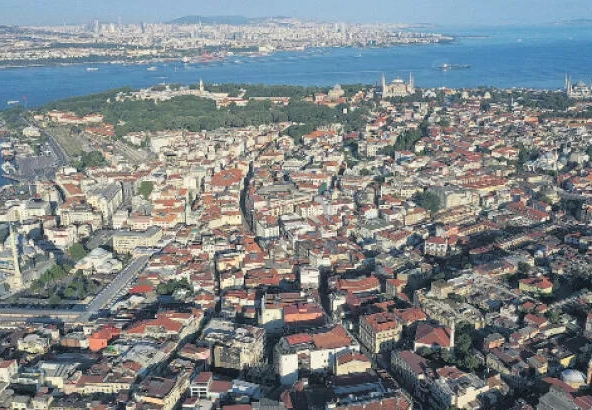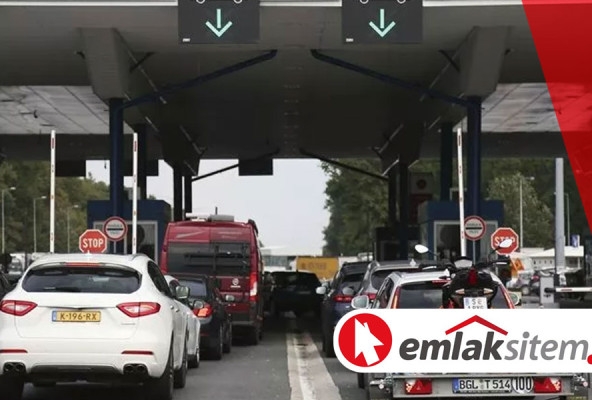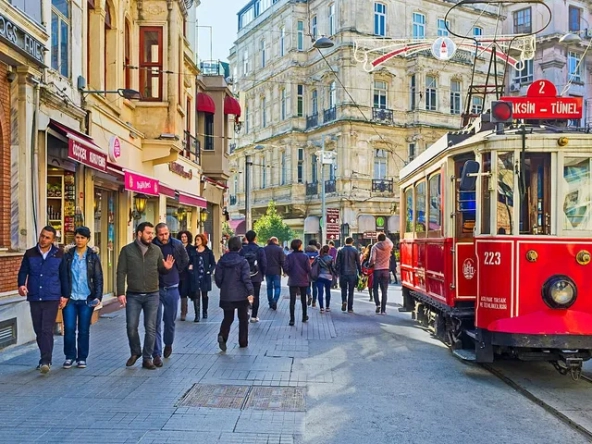While seeking solutions against global climate change with various summits and events, the contractors focused on the “sustainable city” target in this process. Erdal Eren, President of the Turkish Contractors Association, said, “While urbanization continues rapidly in the world, the measures to be taken for ‘sustainable cities’ become urgent with the global climate crisis. The guidance of science should be given priority. Building structures with an economic life of 100 years should be built, not to be transformed again in 20-30 years. Urban architecture should also be shaped with this approach,” he said.
Erdal Eren, President of the Turkish Contractors Association (TMB), made an assessment before the 8th of November, World Urban Planning Day.
Stating that World Urbanism Day is being celebrated globally this year, with the agenda of combating an intense climate crisis like never before, Eren said, “While urbanization continues rapidly in the world, measures to be taken for ‘sustainable cities’ gain urgency with the global climate crisis.” said.
Pointing out that according to the United Nations (UN) data, more than half of the world’s population has lived in cities since 2007, Eren said that this rate is expected to increase to 60 percent by 2030.
Eren reported that cities and metropolises, which contribute about 60 percent of the global gross domestic product (GDP), also account for about 70 percent of global carbon emissions and more than 60 percent of resource use.
“STRUCTURES WITH ECONOMIC LIVES OF 100 YEARS SHOULD BE BUILT”
Emphasizing the increasing importance of the concept of “sustainable construction” in the current table, Eren said:
“In this context, policies that include taking into account the needs of future generations, efficient use of resources, conservation of energy and the selection of environmentally friendly building materials are needed. Therefore, the guidance of science should be prioritized by the use of architects, engineers and technical consultants. It will not be transformed again in 20-30 years. “Buildings with an economic life of 100 years should be built. Urban architecture should also be shaped with this approach and changes should not be made frequently.”
Eren stated that innovative/creative projects for this purpose should be supported primarily through the use of green buildings and efficient energy technologies.
“URBAN TRANSFORMATION IS VITAL FOR TURKEY”
Pointing out that urban transformation is of vital importance for Turkey, where earthquake risk is high, Eren said:
“This transformation should be planned and implemented on a holistic basis, taking into account the urban infrastructure, historical and environmental texture, and all the rights of the residents, especially the right to property. Preferences should be freed from personal considerations. Environmental effects and recycling of construction wastes should also be taken into account at the planning stage.”
Eren summarized the steps that need to be focused quickly in the fight against earthquakes under 7 headings as “competent building contractor, strong building inspection, competent engineering system, workforce with professional qualifications, quality materials, versatile zoning legislation and conscious public”.
“INVENTION OF NEW FINANCIAL INSTRUMENTS WILL BE MORE ON THE AGENDA”
Stating that the first steps taken in the direction of classification of building contractors were especially pleasing, Eren said that they hoped that the works would accelerate even more.
Eren added that the introduction of new financial instruments within the framework of the need to accelerate urban transformation will be on the agenda more in the coming period.
“WE HAVE TO USE ENERGY EFFICIENTLY”
Tayfun Küçükoğlu, Chairman of the Board of Directors of Türkiye İMSAD (Turkish Construction Material Industrialists’ Association), pointed out that the cost of energy is increasing all over the world and said, “We must focus on sustainable buildings in order to increase the number of earthquake resistant and energy efficient buildings in all our cities.” said.
Emphasizing that the global climate crisis necessitates efficiency in cities for the sustainability of energy resources, Küçükoğlu said:
“Severely increasing costs all over the world make both producers and consumers more sensitive to this issue. We have to use energy efficiently in order to reduce energy consumption in the buildings we live in and to leave healthier cities with higher quality of life to future generations. Thanks to this awareness, we have to save both the household budget and We can also save a significant amount of money in our economy.”
mphasizing that there is a lot of room for improvement in energy efficiency, Küçükoğlu said that most of the imported energy is used in housing and services.
Küçükoğlu stated that 35 percent of the total energy is consumed in housing and services, 34 percent in industry, and the rest is consumed in transportation, agriculture and livestock and non-energy areas.
“We can save 30 to 40 percent of the energy consumed at the level of 20 billion dollars on the housing and services side. We have the necessary skills, infrastructure and the opportunity to save energy by putting all kinds of energy efficient instruments into our lives. This amount of savings is both for the protection of the climate and for our country. At a level that will contribute to the correct management of the current account deficit of the economy and to live in better cities.”
“WE CAN SAVE ABOUT 90 PERCENT OF ENERGY WITH INSULATION”
Emrullah Eruslu, Chairman of the Board of the Heat, Water, Sound and Fire Insulators Association (İZODER), stated that the urban transformation opportunity should be used well in order for all cities of Turkey to have energy-efficient, safe and healthy buildings and said, “If all buildings to be reconstructed in the urban transformation process If we pay attention to insulation thicknesses, we can save about 90 percent energy compared to a building that has never been insulated.” he said.
Eruslu noted that 80% of the buildings in Turkey do not have thermal insulation and that the insulation thicknesses applied in cities are behind the cities in the same climate zone in Europe.
Pointing out that 80 percent of the energy used in buildings is consumed for heating and cooling purposes, Eruslu said, “When we include the energy we produce with our own resources, the total energy cost of Turkey is around 60 billion dollars. In our country, we save 9 billion dollars every year by making buildings energy efficient. We have the potential to achieve it.” used the phrases.




